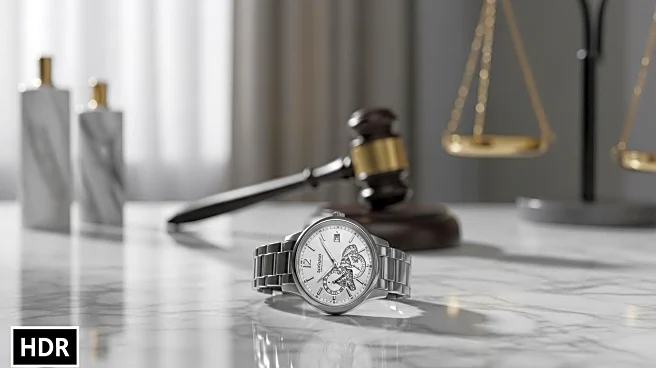What's Happening?
The Paris Court of Appeal has ruled on a case involving Rolex, addressing the company's attempt to maintain confidentiality over extensive data submitted in an antitrust appeal. The case stems from a 2023 sanction by the French Competition Authority against Rolex for banning online sales by authorized distributors, violating EU and French competition laws. Rolex sought to keep data from 2018 onward confidential, citing supply shortages, which the court agreed to treat as trade secrets. However, the court refused to seal materials from 2017 and earlier, as Rolex failed to provide evidence for their continued confidentiality. The decision relies on the 'five-year presumption,' a principle that considers business information over five years old as non-confidential unless proven otherwise.
Why It's Important?
This ruling has significant implications for luxury brands like Rolex, which rely on secrecy to maintain brand mystique and competitive advantage. The decision challenges the notion that older business data can indefinitely remain confidential, potentially exposing historical production and distribution practices. This transparency could affect the perceived scarcity of luxury goods, a key marketing strategy. The ruling also sets a precedent for other luxury companies with selective distribution systems, indicating that courts may increasingly demand proof to justify confidentiality claims. This shift could impact how luxury brands manage their data and competitive strategies.
What's Next?
The Court of Appeal will continue to assess the legality of Rolex's online sales prohibition. Meanwhile, Rolex must revise its submissions to unredact pre-2018 data, which may reveal more about its historical practices. The ruling suggests a balance between protecting recent trade secrets and ensuring transparency for older data. This approach may influence future competition cases, prompting luxury brands to reassess their confidentiality strategies and prepare for potential legal challenges.
Beyond the Headlines
The court's decision highlights the tension between brand strategy and legal transparency. As luxury brands navigate this landscape, they may need to adapt their business models to balance secrecy with compliance. The ruling could lead to broader discussions on the ethical implications of data secrecy in the luxury industry, potentially driving changes in how brands communicate scarcity and exclusivity.









